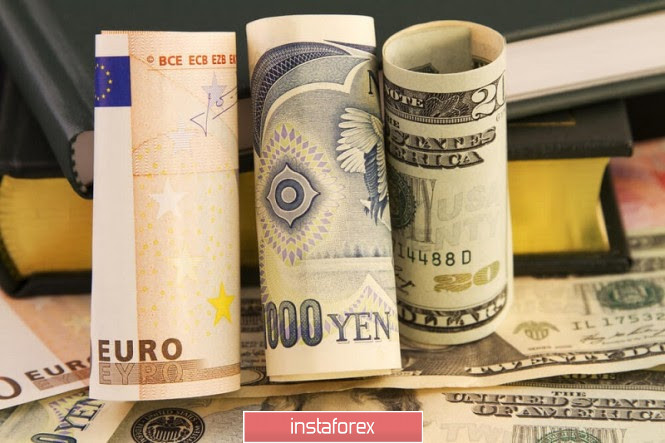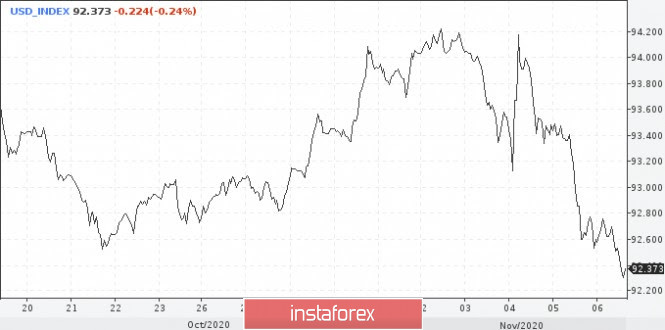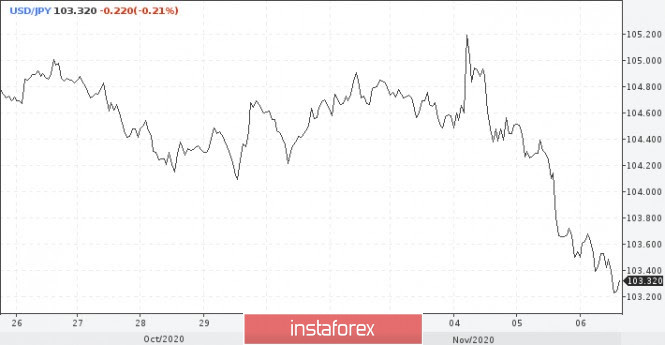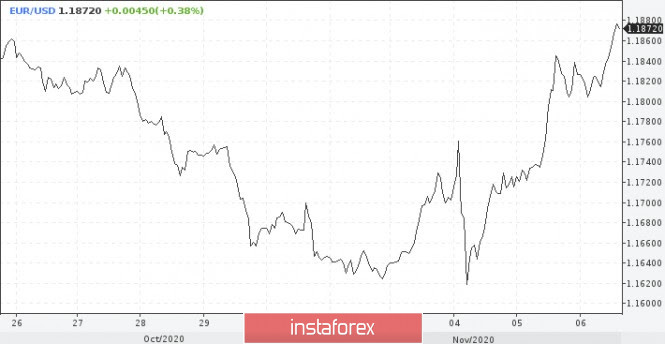
The elections are developing according to the worst-case scenario. Both candidates are confident of their victory, while Donald Trump continues to threaten to challenge the results of the vote in court. The Asian session received an update on the vote today. Currencies reacted poorly to it because few people believe that the situation with the determination of the US President will be resolved quickly. There are weeks or even months of uncertainty ahead.
Delaying this process should benefit the US Dollar but for now it has shown weakness. Yesterday's high was associated with the confidence of the markets in the victory of the Democrat and hopes for the allocation of money for the American economy. However, it is worth considering that the Republicans will retain control of the Senate. The adoption of a larger stimulus package will be difficult. In addition, if you reject the idea of legal proceedings over the vote and look at what is happening now, a different picture will emerge. Yes, Biden retains the advantage but the votes have not yet been counted which means that Trump's victory could still be possible.
On Friday, the dollar index is trading near two-week lows-- around 92.60. During the week, the indicator lost 1.5% of its value, which is the largest drop in almost four months.

Pressure on the Dollar was also triggered by the fall in the yield of long-term Treasury bonds. Yields declined due to expectations of budget cuts, as well as a rally in stocks and other riskier assets. So far, the currency will continue to remain under pressure.
Today, investors are evaluating data on non-agricultural employment in the United States. The report should reflect a slight slowdown in job creation. Concerns about the economy are growing and this is a reason for the continuation of the downward trend in the Dollar. The rise in new Coronavirus cases to record levels in several states is likely to contain economic activity.
Against the Yen, the Dollar was trading at 103.25 today, close to an eight-month low. The Prime Minister of Japan intends to work closely with foreign authorities to maintain the exchange rate of the national currency. The strongest Yen is seen as a threat to the Japanese economy. However, closing the USD / JPY pair below 104 will strengthen expectations of further depreciation and may open the way to the 101 mark.

The reasons for this failure are that the difference in interest rates on the 10-year government debt has changed for the worse against the Dollar this week. The yield on American ten-year-notes has fallen by 11bps since last Friday while the corresponding yield on Japanese securities has sunk by just 2bps. This, of course, cannot fully explain the weakness of the USD/JPY pair. However, the fall in US yields has made a big contribution to the weakening of the Dollar this week.
The Euro is helped by expectations of a Biden victory and progress in creating an EU recovery fund. The main pair was trading near 1.19 on Friday.

A Democrat who doesn't control the Senate will be less aggressive on trade policy but will have to be more limited on fiscal stimulus. One of the main roles will be assigned to the Federal Reserve, which means low rates for a long time.





















